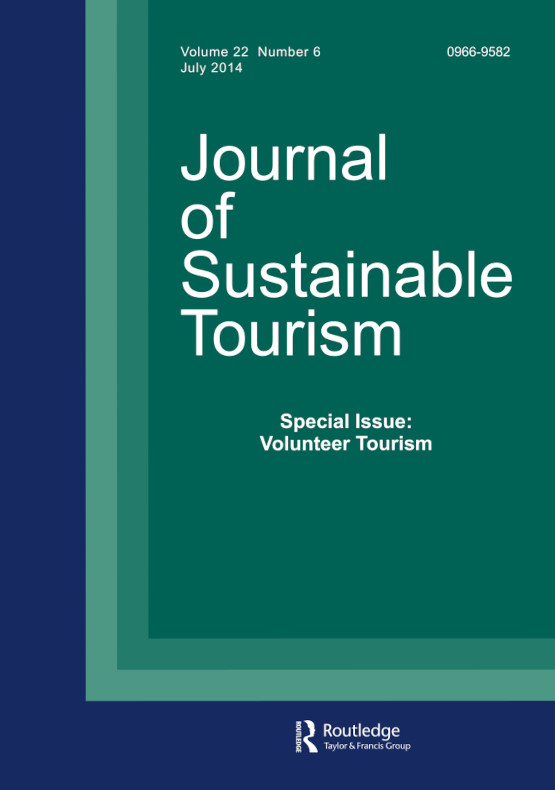How moral disengagement links to destination marketing organisations’ moral muteness in their sustainability communications
IF 7.8
2区 管理学
Q2 GREEN & SUSTAINABLE SCIENCE & TECHNOLOGY
引用次数: 0
Abstract
If destination marketing organisations (DMOs) are to contribute to the United Nations Sustainable Development Goals, they have a moral responsibility to encourage the development of more sustainable tourism, to promote this to consumers and engage them to behave more sustainably. However, we know little about how these DMOs frame the sustainability discourses of their destinations or how they urge potential consumers to act. We conducted a content and discourse analysis of six European Arctic DMO consumer websites. The findings reveal examples of euphemistic labelling and using morally neutral language to conceal unsustainable activity. There is a sustainability communication discourse in what can be interpreted as moral muteness. Moral muteness helps us to interpret how DMOs downplay the negative impacts of tourism and promote low-effort pro-environmental behaviour to provide a narrative that allows the clients to morally disengage. This article contributes to the call for discussion on the ethics of sustainable tourism and the need to overcome an innately economic growth-friendly tourism science.道德脱离与目的地营销组织在可持续发展沟通中的道德沉默有何联系
如果目的地营销组织(dmo)要为联合国可持续发展目标做出贡献,他们在道义上有责任鼓励发展更可持续的旅游业,向消费者推广这一点,并使他们的行为更可持续。然而,我们对这些dmo如何构建其目的地的可持续性话语或他们如何敦促潜在消费者采取行动知之甚少。我们对六个欧洲北极DMO消费者网站进行了内容和话语分析。研究结果揭示了一些委婉的标签和使用道德中立的语言来掩盖不可持续的活动的例子。有一种可持续性传播话语可以被解释为道德沉默。道德沉默有助于我们解释dmo如何淡化旅游业的负面影响,并促进低努力的亲环境行为,以提供一种叙事,让客户在道德上脱离。本文呼吁对可持续旅游的伦理进行讨论,并呼吁克服固有的经济增长友好型旅游科学的必要性。
本文章由计算机程序翻译,如有差异,请以英文原文为准。
求助全文
约1分钟内获得全文
求助全文
来源期刊

Journal of Sustainable Tourism
Multiple-
CiteScore
23.10
自引率
8.90%
发文量
91
期刊介绍:
The Journal of Sustainable Tourism advances critical understanding of the relationships between tourism and sustainable development. The journal publishes theoretical, conceptual and empirical research that explores one or more of the economic, social, cultural, political, organisational or environmental aspects of the subject.
The Journal of Sustainable Tourism encourages critical views, as well as new ideas and approaches in relation to the theory and practice linking tourism and sustainability.
 求助内容:
求助内容: 应助结果提醒方式:
应助结果提醒方式:


